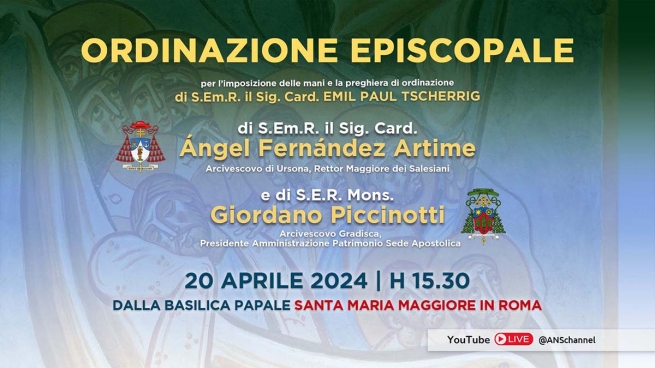Restoration of the Belltowers of the Basilica of Mary Help of Christians Begins
(ANS – Turin – April 26, 2024) – The scaffolding that will allow the restoration and conservation of the 2 belltowers of the basilica of Mary Help of Christians in Turin was erected on April 24.
In the previous extensive conservation and
restoration of the entire basilica, which was organized into three lots in
2004-2008, the belltowers weren’t included. As a result, in April last year it
was necessary, through the intervention of a crane, to secure the angels above
the two belltowers, ultimately detaching the dangerous wings of the Archangel
Gabriel placed on the belltower on the right side and the flag, also dangerous,
of the Archangel Michael, on the left looking at the facade of the basilica.
The process then began for the
design of the renovation and conservation of the belltowers, with their cupolas
and the 2 statues, together with the statue of our Lady placed on the first
cupola, the largest. The concert of bells from the towers also will be
renovated.
The rector major of the Salesians and the treasurer
general, Bro. Jean Paul Muller, encouraged this project, which was
approved by the general council in June 2023. The treasurer general has created
a working commission composed of the provincial treasurer of the Piedmont Province,
the director of the Mary Help of Christians community, and the rector of the basilica.
“The basilica of Mary Help of Christians,” Bro.
Muller writes, “is the central place of our devotion to the Help of Christians,
who has always accompanied us and will accompany us in all the challenges
thruout our history.”
Last summer, major works and various
inspections began immediately, and in these first months of 2024, after analyzing
the estimates of 5 companies, one company was chosen for both the structural
works and the belltower system. All this is still a sign of Providence, that
these works begin and should end in the bicentennial year of Don Bosco’s dream
at nine years of age.
“Soon a fundraiser will be organized,”
explains Fr. Michele Vivano, rector of the basilica, “certain that Mary Help of
Christians continues to be our treasurer, as she was for Don Bosco, if we continue
to be her devoted children.”








